|
An issue for reflection
WHAT IS THE ESSENCE OF LOVE?
|
|

|
|
Linda loves her son Gabriel. Gabriel loves humanity, but especially the girl across the street. The girl across the street loves her dog Nero, and she also loves her father. Her father loves only himself. Actually, her father also loves the new president of the country. And chocolate cookies too.
- So many kinds of love! Why do they have same name: “love”? Are they all forms of the same thing? Do they have the same essence?
- Are you saying that love has an essence?
- I mean, do all loves have the same feeling?
- But is love a feeling?
- Well, are they all the same kind of energy?
- But is love an energy?
- What else can love be? A longing? A need? Maybe an attitude, or an impetus, or a suffering of the heart, or who knows what?
|
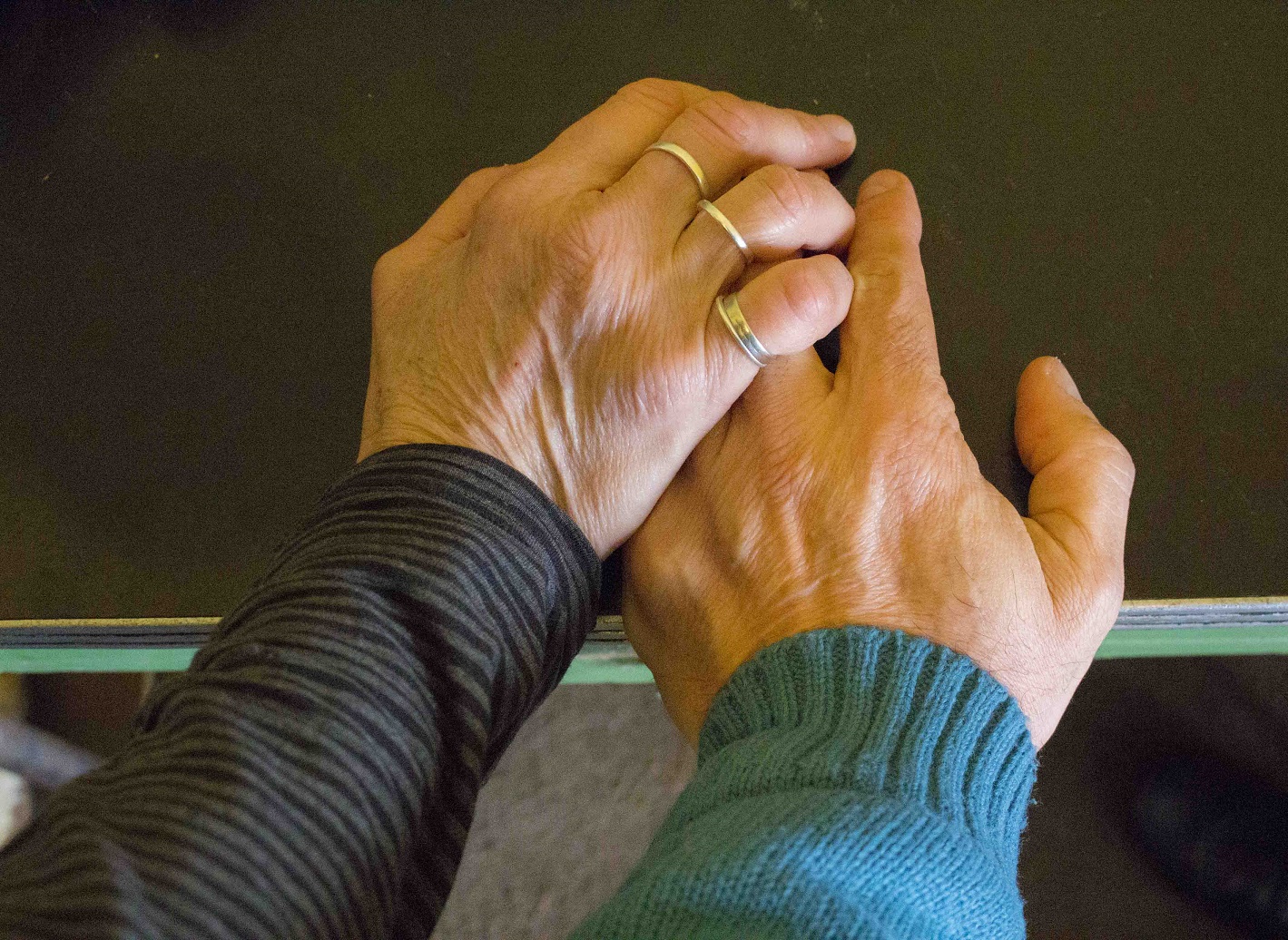 |
|
|
|
February Week 1 quotation
ERICH FROMM
|
|
I love the world through you
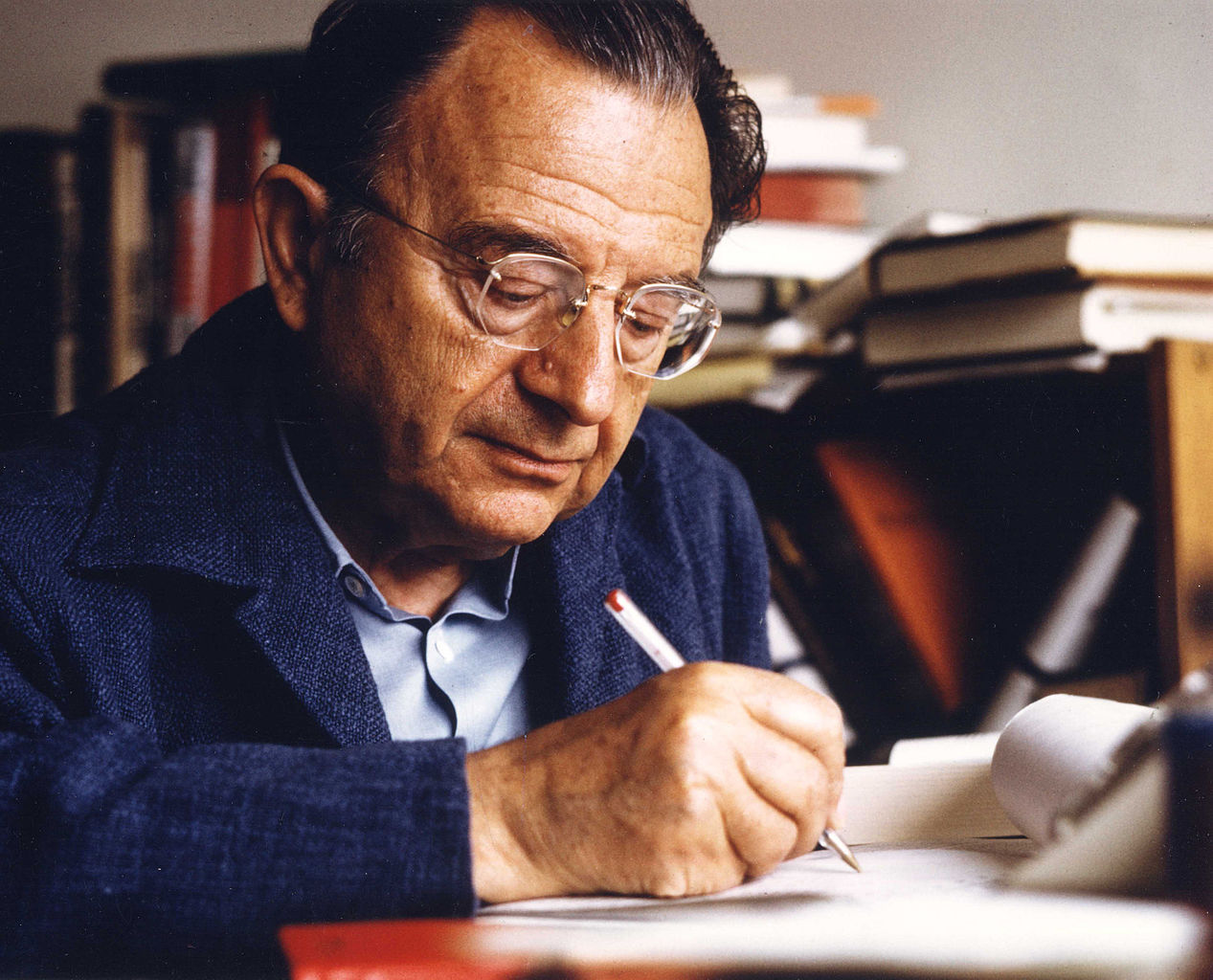 Erich Fromm (1900-1980) was a German-born Jewish psychologist, psychiatrist, and philosopher. He did his doctorate in sociology, and then studied psychiatry and practiced it. After the rise of the Nazis he left Germany, and practiced and taught in New York, Vermont, Mexico City, Michigan, and Switzerland. For several years he was associated with Neo-Freudian psychologists, but he later developed a humanistic approach to psychology and philosophy. He published many books that addressed basic issues of the individual and society. Erich Fromm (1900-1980) was a German-born Jewish psychologist, psychiatrist, and philosopher. He did his doctorate in sociology, and then studied psychiatry and practiced it. After the rise of the Nazis he left Germany, and practiced and taught in New York, Vermont, Mexico City, Michigan, and Switzerland. For several years he was associated with Neo-Freudian psychologists, but he later developed a humanistic approach to psychology and philosophy. He published many books that addressed basic issues of the individual and society.
The Art of Loving (1956) is one of Erich Fromm’s most popular books. In this book he distinguishes between true love and distorted forms of love, and claims that true love is rare in our contemporary society. In true love we respond to our fundamental isolation, we transcend our boundaries and connect with the world and with life. This is very different from false love, which centers on myself – on personal needs and self-interest. Since love is an active attitude, it is an art which can be learned and cultivated.
(From Chapter 2, section 1)
Love is an active power in the person, a power which breaks though the walls that separate the person from his fellow human beings, which unites him with others. Love makes him overcome the sense of isolation and separateness, yet permits him to be himself, to retain his integrity. In love the paradox occurs that two persons become one, yet remain two.
[…]
Envy, jealousy, ambition, any kind of greed are passions. Love is an action, the practice of a human power, which can be practiced only in freedom and never as the result of a compulsion. Love is an activity, not a passive effect. It is a “standing in,” not a “falling for.” In the most general way, the active character of love can be described by saying that love is primarily giving, not receiving.
What is giving? Simple as the answer to this question seems to be, it is actually full of ambiguities and complexities. The most widespread misunderstanding assumes that giving is “giving up” something, being deprived of, sacrificing.
[…]
Giving is the highest expression of potency. In the act of giving I experience my strength, my wealth, my power. The experience of heightened vitality and potency fills me with joy. I experience myself as overflowing, spending, alive, therefore as joyous. Giving is more joyous than receiving – not because it is a deprivation, but because in the act of giving lies the expression of my aliveness.

[...]
What does one person give to another? He gives of himself, of the most precious he has, he gives his life. This does not necessarily means that he sacrifices his life for the other – but that he gives him from what is alive in him. He gives him from his joy, from his interest, from his understanding, from his knowledge, from his humor, from his sadness – from all the expressions and manifestations of what is alive in him. In this giving from his life, he enriches the other person, he enhances the other’s sense of aliveness by enhancing his own sense of aliveness. He does not give in order to receive. Giving is in itself an exquisite joy. But in giving he is necessarily giving something to life in the other person, and what is brought to life reflects back to him. In truly giving, he cannot help receiving that which is given back to him. Giving means to make the other person a giver also, and they both share in the joy of what they have brought to life. In the act of giving something is born, and both persons involved are grateful for the life that is born for both of them. With regards to love that means: Love is a power which produces love. Impotence is the inability to produce love.
(From Chapter 2, section 3)
Love is not primarily a relationship to a specific person. It is an attitude, an orientation of character which determines the relatedness of a person to the world as a whole, not toward one “object” of love. If a person loves only one other person and is indifferent to the rest of his fellow human beings, his love is not love but a symbiotic attachment, or an enlarged egotism. […] If I truly love one person, I love all persons, I love the world, I love life. If I can say to somebody, “I love you,” I must be able to say “I love in you everybody, I love through you the world, I love in you also myself.”
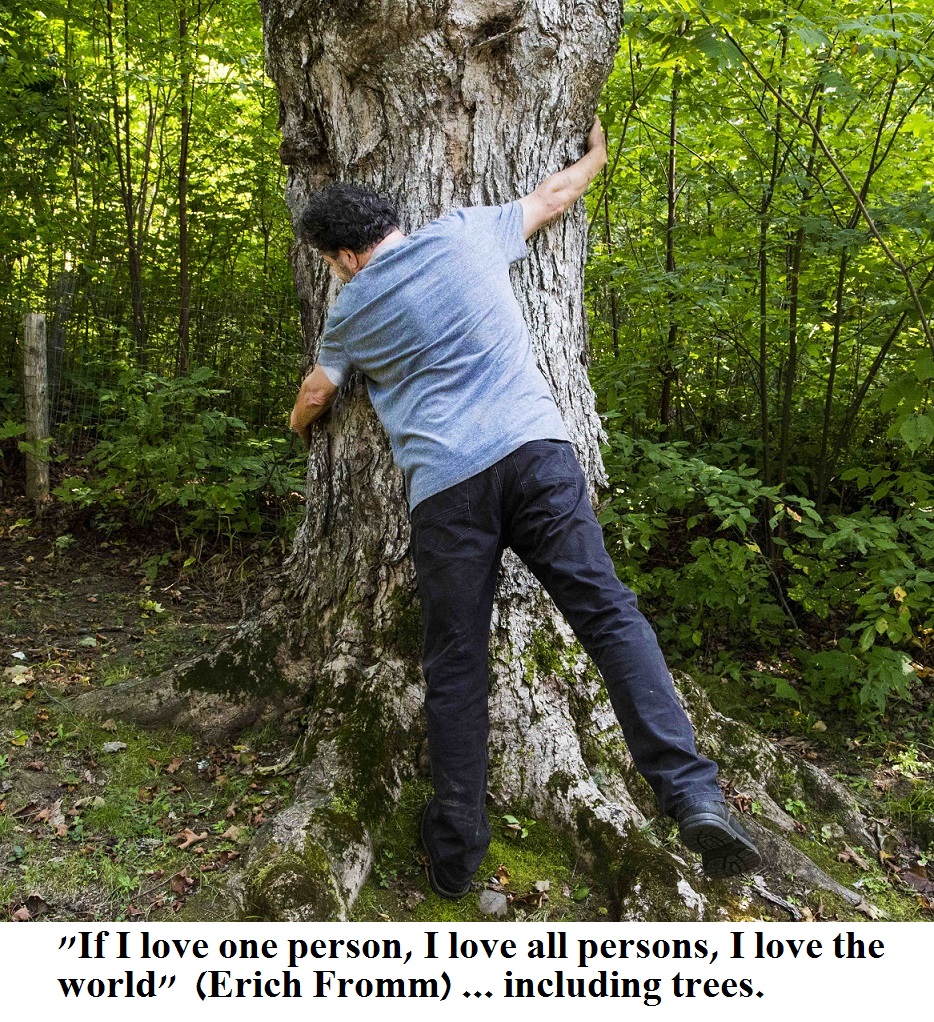
|
|
February Week 2 quotation
SIMONE WEIL
|
|
Loving you means wanting you to exist
 Simone Weil (1909-1943) was a Jewish-born French spiritual philosopher, and was also a political activist with communist and anarchist leanings. She studied philosophy at the École Normale Supérieure in Paris, and taught philosophy at a secondary school. She took a year off to work as a manual worker at a factory in order to connect with the working class. She later participated in the Spanish Civil War against the fascists, until she was burnt in a cooking accident and left Spain. While recuperating in Assisi, Italy, she had spiritual experiences, and became attracted to mysticism and Christianity, although she never converted and continued to value other spiritual traditions. During World War II, while working for the French resistance in England, she did not want to eat more than what French people could eat under German occupation. Weakened, she contracted tuberculosis, and died at the age of 34 from cardiac arrest. Simone Weil (1909-1943) was a Jewish-born French spiritual philosopher, and was also a political activist with communist and anarchist leanings. She studied philosophy at the École Normale Supérieure in Paris, and taught philosophy at a secondary school. She took a year off to work as a manual worker at a factory in order to connect with the working class. She later participated in the Spanish Civil War against the fascists, until she was burnt in a cooking accident and left Spain. While recuperating in Assisi, Italy, she had spiritual experiences, and became attracted to mysticism and Christianity, although she never converted and continued to value other spiritual traditions. During World War II, while working for the French resistance in England, she did not want to eat more than what French people could eat under German occupation. Weakened, she contracted tuberculosis, and died at the age of 34 from cardiac arrest.
Gravity and Grace (1940-1942) is probably Simone Weil’s most popular book. It is a collection of passages, selected from her notebooks by her Catholic friend Gustave Thibon. This philosophical-spiritual collection emphasizes self-negation, purification, suffering, goodness and beauty. The following passages are adapted from the chapter “Love.” In this chapter she explains that pure love does not wish to possess, does not want to get satisfaction, to demand or influence. It only appreciates the fact that the beloved is there – or, in Weil’s language, it only wants the beloved to exist. Love makes you fully aware of your beloved’s existence. In this sense, loving another person is like loving a work of art.
(From the chapter "Love")
Among human beings, only the existence of those we love is fully recognized.
Belief in the existence of other human beings as such is love.
The mind is not forced to believe in the existence of anything. This is why the only organ of contact with existence is acceptance, love. This is why beauty and reality are identical. This is why joy and the sense of reality are identical.
[…]
Love needs reality. What is more terrible than the discovery that, through a bodily appearance, we have been loving an imaginary person. This is much more terrible than death, because death does not prevent the beloved from having lived.
That is the punishment for feeding love on imagination.
It is an act of cowardice to seek from the people we love (or to wish to give to them) a consolation that is different from what art-works give us. Art-works help us just by the fact that they exist. To love and to be loved make this existence more concrete, more constantly present to the mind. But this existence should be present as the source of our thoughts, not as the object of our thoughts. If there is any reason for wanting to be understood, it is not for our own sake but for the sake of the other person, in order that our thoughts may exist for him.

Everything in us which is low or second-rate revolts against purity and needs, because it wants to save its own life, to corrupt this purity.
To corrupt is to modify, it is to touch. The beautiful is what we cannot wish to change. To assume power over something is to corrupt it. To possess is to corrupt.
To love purely is to agree to distance, it is to adore the distance between ourselves and what we love.
[…]
[…] This is the price of chaste love. Every desire for enjoyment belongs to the future and to the world of illusion, whereas if we desire only that somebody would exist, he exists: what more is there to desire? The beloved person is then naked and real, not hidden by an imaginary future. The miser never looks at his treasure without imagining it n times larger. It is necessary to be dead in order to see things in their nakedness.
Thus, in love there is chastity or the lack of chastity depending on whether the desire is or is not directed towards the future.
In this sense, the love we devote to a dead person is perfectly pure (assuming we don’t turn this love towards a future pseudo-immortality). Because it is a desire for a life which is finished, which can no longer give anything new. We desire that the dead person would have existed, and he had existed.
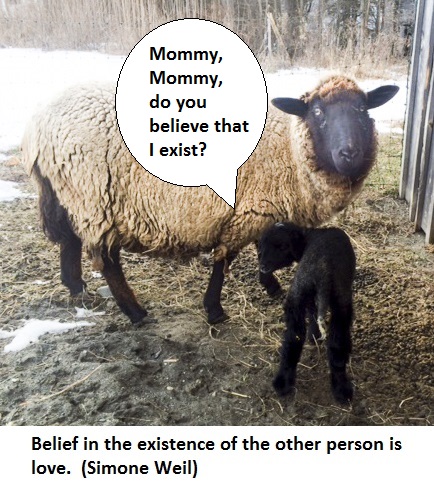
|
|
. ......
|
|
February Week 3 quotation
MIGUEL DE UNAMUNO
|
|
Love is compassion for myself, extended to others
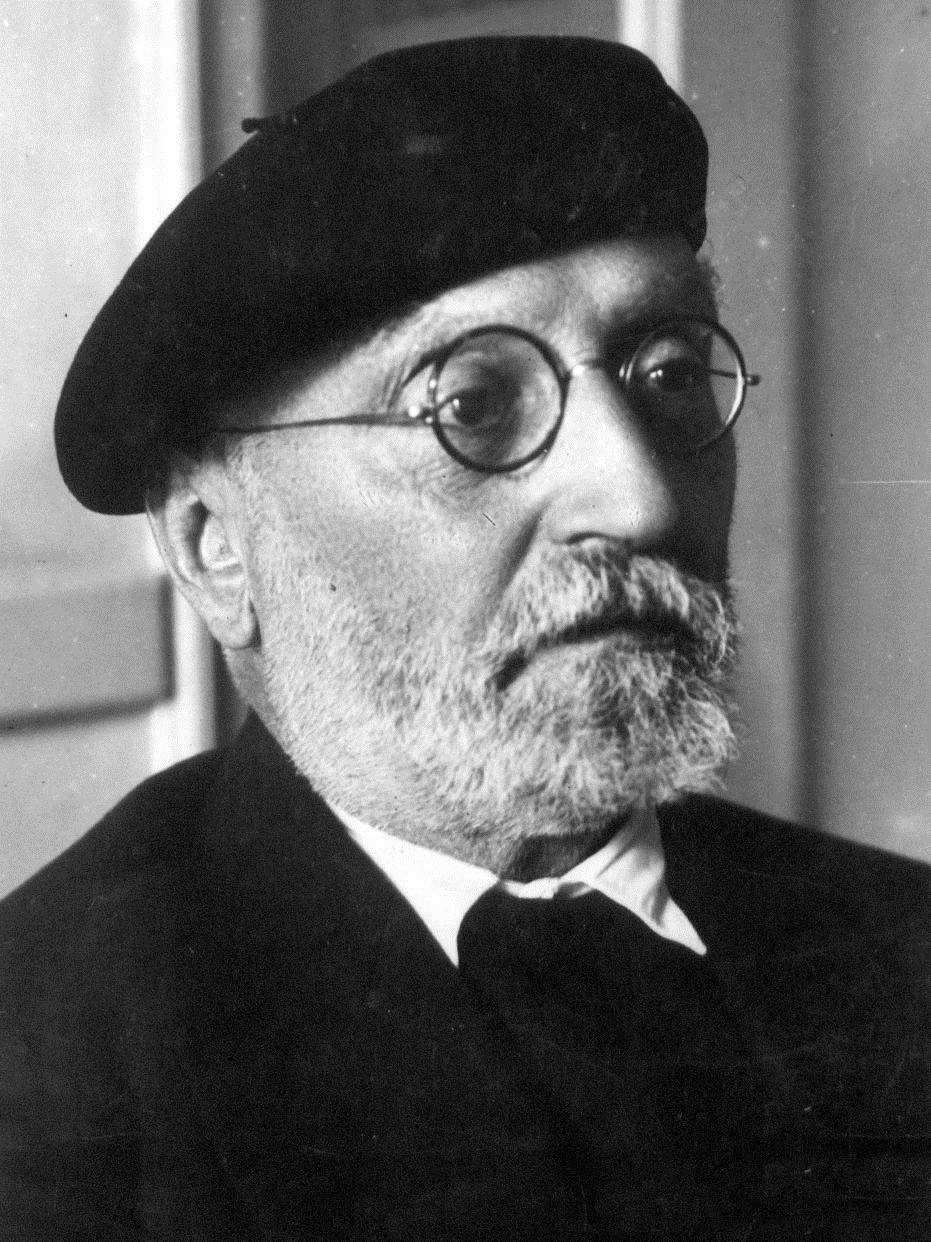 Miguel de Unamuno (1864-1936) was a Spanish philosopher, novelist and poet. After studying at the University of Madrid, he became a professor at the University of Salamanca, and then rector of the university. In 1924 Unamuno published articles criticizing the Spanish dictator Primo de Rivera, and as a result he was dismissed from the university and escaped to France. After the fall of Rivera, in 1930, Unamuno returned to Salamanca to become rector again. In 1936 he was again banished from the university, this time for criticizing Franco. He died from heart attack while under house arrest. Miguel de Unamuno (1864-1936) was a Spanish philosopher, novelist and poet. After studying at the University of Madrid, he became a professor at the University of Salamanca, and then rector of the university. In 1924 Unamuno published articles criticizing the Spanish dictator Primo de Rivera, and as a result he was dismissed from the university and escaped to France. After the fall of Rivera, in 1930, Unamuno returned to Salamanca to become rector again. In 1936 he was again banished from the university, this time for criticizing Franco. He died from heart attack while under house arrest.
The following passages are adapted from Unamuno’s The Tragic Sense of Life (1912), which revolves around the issue of death – a central issue in Unamuno’s philosophy. This book – philosophical, poetic, personal – is filled with the desire for eternal life. Human life is tragic because rationally we know that we are going to die, although we also have the need to believe in God and eternal life. The result is an inner conflict between our rational thought and our need to believe. We keep searching for God, knowing rationally that we will not find him.
In the following selection, Unamuno explains that love originates from our despair and self-pity. We feel compassion for ourselves because of our mortality, our nothingness, our misery. And this self-compassion is then expanded to compassion and love for others who are miserable like us, for all creatures, for the world, for God.
(from Chapter 7: Love, Pain, Compassion and Personality)
Love, my readers and brothers and sisters, is the most tragic thing there is. Love is the child of illusion and the parent of disillusion. Love is consolation in desolation. It is the only remedy against death, since it is death’s sister.
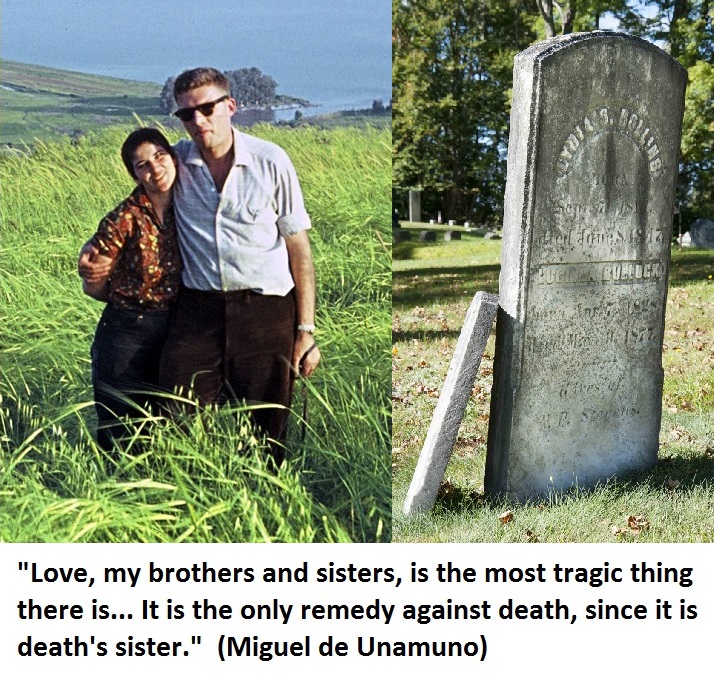
[…]
To love spiritually is to feel compassion, and whoever feels most compassionate loves most. People who burn with charity towards their fellow human beings feel this way because they have understood the depths of their own misery, of their own lack of substance, their own nothingness. And then, after turning their opened eyes towards their fellow human beings, they see that these people too are equally miserable, subject to annihilation, and they feel for them compassion and love.
[…]
As love grows, the passionate yearning to reach the ultimate, to reach the deepest of all things, is extended to everything visible, and you feel compassion for all. As you go within yourself, the deeper you go the more you discover your emptiness, you discover that you are not completely yourself, that you are not what you want to be, and in short that you are nothing. When you reach your own nothingness, when you cannot find a stable ground within yourself, when you cannot discover your own infinity – let alone your own eternity, you will feel full compassion for your own fate, and you will burn with a sorrowful love for yourself. It will extinguish self-love, which is only a sensual kind of self-satisfaction or self-gratification, coming from your own self’s body.
Spiritual love for yourself, the compassion you feel for yourself, may perhaps be called egotism, but nothing is more contrary to ordinary egoism. Because from this love or compassion for yourself, from this intense despair, from the knowledge that you will not exist after you die just as you did not exist before your birth, you go on to feel compassion for – that is, love to – all your fellow human beings in this world of appearance, those miserable shadows who walk about, going from nothingness to nothingness, mere sparks of consciousness shining for a moment in the infinite and eternal darkness. And from feeling compassion for other people, for those who are similar to you, for those around you, you go on to feel compassion for everyone alive, and perhaps even compassion for what does not live but only exists.
[…]
If you look at the universe as closely and inwardly as you can, in other words within yourself, if you sense – and not just think – everything in your consciousness, where all things have left their painful imprint, then you will understand the depth of tedium, not only the tedium of life, but of something more: the tedium of existence, the bottomless well of the vanity of vanities. And so you will come to feel compassion for all things: you will feel universal love.
In order to love everything, in order to feel compassion for all things – human and extra-human, living and not living – you must feel everything within yourself, you must personalize everything. Because love personalizes everything it loves, everything it pities. […] Because every consciousness is awareness of death and suffering.

|
rrmm
|
February Week 4 quotation
PLATO
|
|
Love is love for the absolute
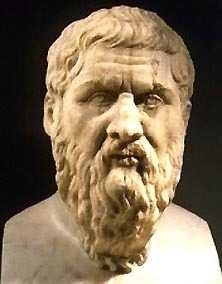 Plato (about 428-348 BC) was one of the main philosophers of Western thought. He grew up in Athens, and was a student of Socrates. He founded the Greek academy, which continued to operate until the 6th century AD (when the Roman emperor closed it). Among his students was Aristotle. Later in his life, Plato attempted to apply his philosophical ideas to the kingdom of Syracuse, with little success. Most of Plato’s books survived to this day, unlike many writings of the ancient world. He often wrote them in the form of a dialogue, usually putting his ideas in the mouth of Socrates. Plato (about 428-348 BC) was one of the main philosophers of Western thought. He grew up in Athens, and was a student of Socrates. He founded the Greek academy, which continued to operate until the 6th century AD (when the Roman emperor closed it). Among his students was Aristotle. Later in his life, Plato attempted to apply his philosophical ideas to the kingdom of Syracuse, with little success. Most of Plato’s books survived to this day, unlike many writings of the ancient world. He often wrote them in the form of a dialogue, usually putting his ideas in the mouth of Socrates.
The following passage is slightly adapted from Plato’s text “The Symposium,” which deals with the nature of love. Plato describes here a drinking party, in which each man has to give a speech in praise of Eros (love). Socrates is one of the participants, and he too gives a speech. The ideas are obviously Plato’s ideas, and Socrates’ name is used only as a literary device.
In his speech, “Socrates” explains that the essence of love is yearning for perfect and eternal beauty. In contrast, popular forms of love – love for men or women, for gold, etc. – are lower levels of love, directed at lower forms of beauty. In the passage below, Socrates tells us what he had learned from the wise woman Diotima about the journey to this higher form of love.
A person who wants to progress on this path of love must begin from early age to devote himself to the beauty of the body. First of all, if his instructor instructs him appropriately, he will fall in love with the beauty of one individual body, and his passion will give birth to noble thoughts.
Next, he will realize that the beauty of one body is closely related to the beauty of every other body, and he will understand that if he wants to devote himself to the pursuit of bodily beauty, it would be absurd to deny that the beauty of every single body is the same beauty. And when he perceives this, he will quiet down his passionate love towards one body, which he will now regard as having little importance, and he will become a lover of every lovely body.
In the next stage, he will realize that the beauty of the soul is much higher than the beauty of the body. And so, if he meets somebody with a lovely soul, even in an unlovely body, he will be content to fall in love with him and admire him, and he will be motivated to find and express thoughts which may build in him a noble character.
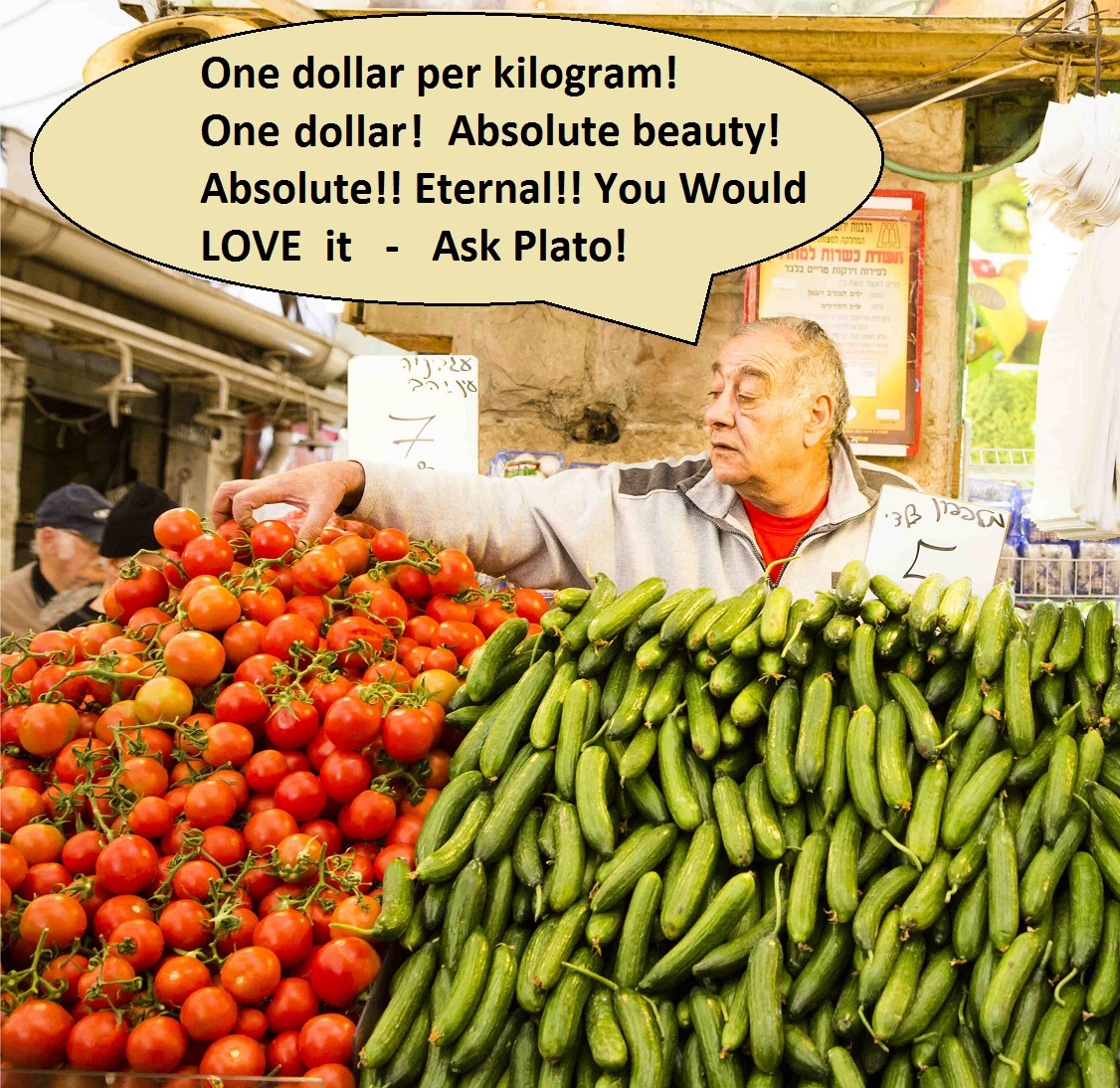
And this will bring him to the beauty of institutions and laws. And when he understands that the beauty of all of them is of the same family, he will conclude that the beauty of the body is not very important.
And next, his attention will turn from laws and institutions to the sciences, so that he may see their beauty. He will no longer be in love with the beauty of one person or one thing, like a narrow-minded slave, but he will turn towards the vast sea of beauty. In this contemplation, he will give birth to many beautiful and noble thoughts in boundless love of wisdom, until, after he grows strong, he has a revelation of a single form of knowledge, which is the knowledge of beauty everywhere.
Now I will continue, she said. Please pay your fullest attention.
A person who has been instructed so far on the topic of love, and who has learned to see the stages of beauty in the right order, will suddenly perceive a wondrous beauty. This is, Socrates, the final goal of all our efforts. It is a kind of beauty which is, first of all, everlasting, not growing and decaying, not coming and disappearing. Second, it is not nice from one perspective and ugly from another, or nice at one time or in one place and ugly at another time or place. […] This beauty is absolute, separate, whole, and eternal, without increase or decrease, and without change. It is the source of the beauty of all the beautiful things.
A person who has ascended these steps, under the influence of true love […] arrives at the understanding of absolute beauty, and at last he knows what the essence of beauty is. This, my dear Socrates," said the stranger of Mantineia, "is the highest form of life which a person can possibly live, in the contemplation of absolute beauty. If you see this beauty only once, you would no longer be interested in any gold and clothes and pretty boys and young men, those that now fascinate you so much.
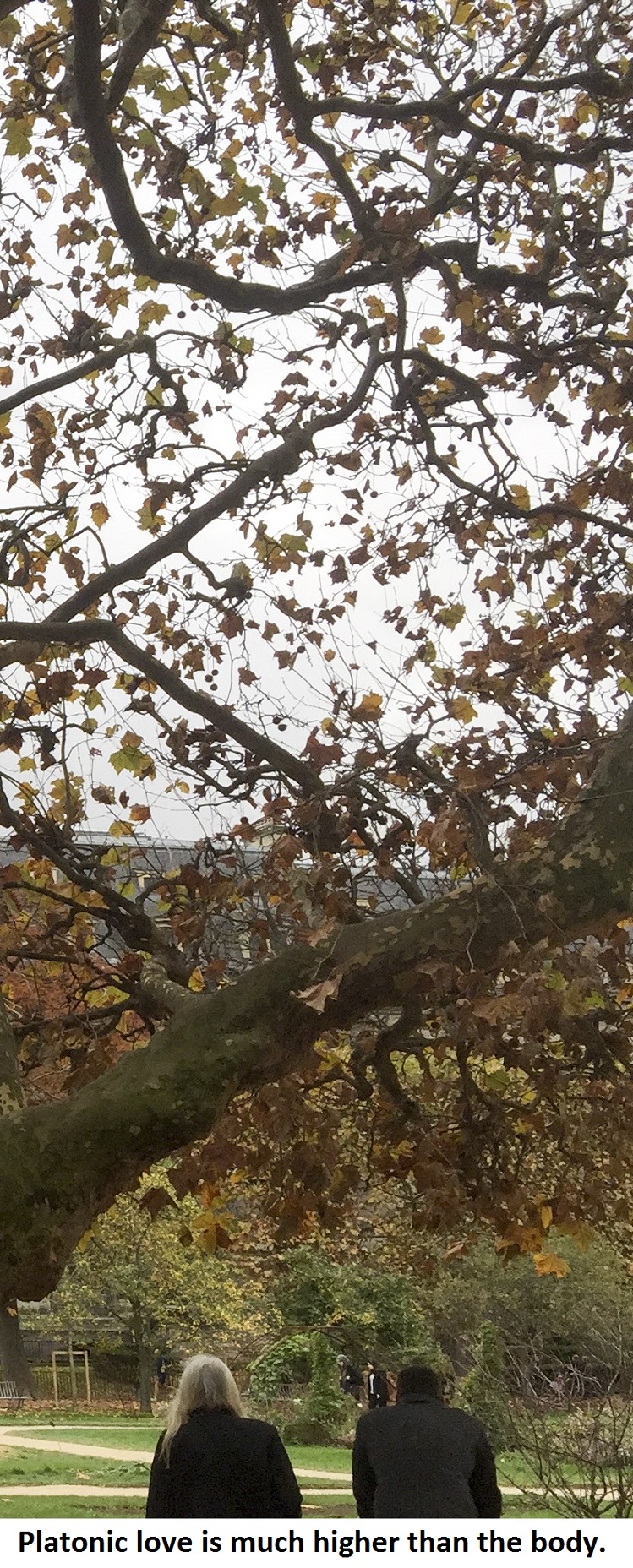
|
|